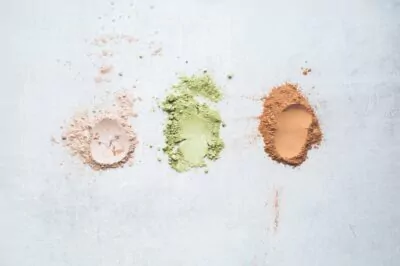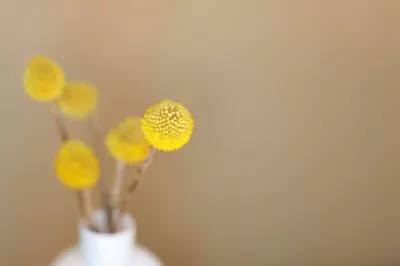Menopause is not something we learn about in school or find out about as we make our way into womanhood. Typically, we discover menopause on our own, symptom by symptom, as it creeps up on us too late in life for our ignorance on the topic to be cute.
Some of us consult a doctor and our journey through menopause becomes a little more clear, although no less painless. However, many of us have such little context we can’t even place our symptoms in the realm of menopause and end up struggling through the process with no guidance or coping methods.
why the stigma around menopause?
The stigma around menopause is seriously messed up—heres why.
The lack of education about menopause stems from deep seeded patriarchal values that we’re here to kick in the face. Throughout history women were valued for their reproductive potential and not much else. Aging was a sign of devaluation and menopause was the ultimate cause for shame.
Ashwagandha Root: An Amazing Adaptogen for Stamina and Stress-Reduction
Even though we’re decades removed from this overt sexism, there is a residual underlying stigma around menopause. That ends now. We bring you an extensive look into the stages of menopause, how you can prepare and little ways to celebrate your body through the process.
Stages of Menopause
There are four basic stages in our reproductive life cycle: premenopause, perimenopause, menopause, and postmenopause. Menopause itself is a specific term defined by medical professionals as 12 months without a period when the ovaries loss function.
So, menopause is actually just a 12 month window of time, but everything surrounding this year can cause confusion for many women.
premenopause
Premenopause refers to everything your body goes through before it begins to transition into menopause. We spend a majority of our life in premenopause and you can think of it in terms of how we discuss puberty.
If puberty is menopause then your entire life before hitting puberty is your prepubescent like your entire life before beginning menopause is premenopausal.
So what is perimenopause?
Perimenopause is the entry point into menopause and is generally talked about as menopause, but there is a distinction. This is a 6-10 year period before your body goes through menopause. On average women notice symptoms for about 4 years before menopause, and some only experience this stage for a few months leading up to menopause.
During this time your body is gradually producing less and less estrogen until you hit menopause. Your ovaries are still functioning and although it’s more difficult, you are able to conceive a child.
Perimenopause is often mislabeled menopause since the symptoms are generally lumped together in the uniformed media. It is in the perimenopausal stage that we experience most of the uncomfortable symptoms that women dread. We’ll get into the symptoms a little later on.
Menopause
Menopause is the simply the technical term for a year without a period marking the end of your ovarian functions. During this year you will experience symptoms, but the brunt of them come during the perimenopausal stage.
Menopause happens differently for every women. The age range is wide, from 30-60, with a majority of women experiencing the transition around 45-55.
Postmenopause
Postmenopause is when you’ve made it. It’s the last stage of your reproductive life cycle and the stage you’ll remain in for the rest of your life. The best part–no more periods, no more tampon/pad purchases, and no more birth control.
The symptoms of menopause stop, but your body is at a higher risk for certain diseases and conditions due to a lack of estrogen. Speak with a medical professional about hormone therapy to counter any conditions you may be prone to.
Symptoms of Perimenopause and Menopause
Brain Fog
Brain fog is when you walk into your kitchen and all of the sudden you can’t remember what you’re doing in there. This happens to the best of us from time to time, but when it’s a symptom of perimenopause it happens more frequently.
This symptom is one of the most troubling because often times women don’t know to expect it. Many women convince themselves they have early onset Alzheimer’s in a wild attempt to explain this very common symptom.
Over-organization will help you get ahead of brain fog. Next time you’re feeling a little spacey or you lose confidence in your memory reach for your planner or to-do list.
Mood Swings
Welcome to a remake of your teenage years, but this time it’s probably your kids ruining your life instead of Mom and Dad.
Hot Flashes, Cold Flashes and Night Sweats
Hot flashes can be a source of embarrassment for many women. When you’re in the middle of one there is really little you can do, but laugh it off or find the nearest fan. However, there are triggers you can avoid, some are obvious like spicy foods, heat, and cigarette smoke and some are not.
To reduce hot flashes avoid…
- stress
- caffeine
- tight clothes
- alcohol
Cold flashes and night sweats are a little harder to prevent since they happen in your sleep, but little things like wearing socks to bed, avoiding alcohol and caffeine before bed, and making sure you get regular exercise can help.
You may also experience insomnia or trouble sleeping due to these factors and hormonal changes.
Vaginal and Urinary Symptoms
The vaginal and urinary tissue changes during perimenopause. Because of the decrease in estrogen the tissue of your vagina and urinary tract become less elastic, thinner and drier. This can make sex painful, but there are ways to cope.
When you start to feel these changes buy some lubricant that works with your body. This is conjunction with hormonal therapy can help ease some of the discomfort.
Body Fat Distribution
During perimenopause, menopause and postmenopause our bodies change shape. Due to the lack of estrogen our weight distribution changes and we begin to carry out body fat around the stomach and waist instead of hips and thighs.
Instead of struggling against this body transformation, try to recognize all the wonderful things your body does for you and really ramp up the self-love.
Ashwagandha Root: An Amazing Adaptogen for Stamina and Stress-Reduction










Leave a Reply